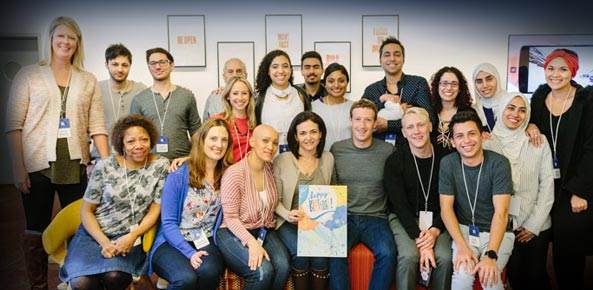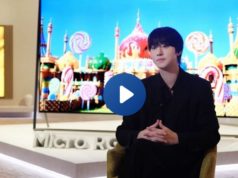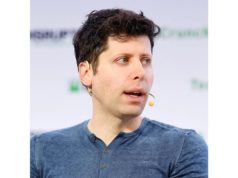In the dozen years since Facebook was founded, the social networking site has grown into a global gathering place for some 1.59 billion active users every month. During that time, it’s also made waves for everything from its ambitious efforts to bring billions of unconnected people onto the Internet to its testing of “massive-scale emotional contagion” — a 2012 experiment that manipulated users’ emotions without their knowledge.
All that, and it’s not even a teenager yet.
Each year, Facebook marks its February 4 birthday by observing “Friends Day,” a call to “celebrate and reflect on the importance of connecting.” This year, the social media giant even unveiled new research on how its existence has changed the notion that we’re all separated from one another by only six people (i.e., the “six degrees of separation”). The reality is that any one Facebook user, it turns out, is separated from any other user by only 3.57 degrees of separation, the company’s data scientists announced today.
5 Billion Users by 2030?
Since Facebook first debuted in 2004 as “Thefacebook” — a program to help students at Harvard University connect with one another — co-founder and CEO Mark Zuckerberg (pictured above, center) has made it increasingly clear that his ambitions for the company go far beyond its current 1.59 billion users.
During the company’s F8 developers’ conference las year, Zuckerberg said his goal was to eventually connect “everybody” through not only Facebook, but through a whole family of Facebook-connected apps, services and tools — eventually, even through virtual reality technologies.
During an event to mark this year’s Friends Day, Zuckerberg told employees he would like to see the company have 5 billion users by 2030, according to a report today in USA Today.
One program focused on that goal — Facebook’s Internet.org (now named “Free Basics”) initiative — is now in its second year and has brought online at least 19 million people in 17 countries who otherwise would not have been able to access the Internet, according to the company.
The program partners with mobile services providers around the world to deliver basic, data-charge-free access to just over a dozen Web sites, including AccuWeather, Facebook, Google Search, MAMA (the Mobile Alliance for Maternal Action) and Wikipedia.
At the same time, however, the Free Basics app has also attracted criticism for helping to promote a two-tier version of the Internet that undermines Net neutrality. Zuckerberg has pushed back strongly against such critiques.
“This isn’t about Facebook’s commercial interests — there aren’t even any ads in the version of Facebook in Free Basics,” Zuckerberg noted in a December 28 commentary published in the Times of India. “If people lose access to free basic services, they will simply lose access to the opportunities offered by the Internet today.”
Shrinking ‘Degrees of Separation’
In its brief lifetime, Facebook has had an unquestionable impact on human interactions around the world. Studies have found the company, with $ 18 billion in revenue last year, can lead to addiction, influence voter participation and — depending on the source — be either a revenue-generating economic engine (with a global impact of $ 227 billion, according to a 2015 study by Deloitte) or a gigantic time-waster that has led to “$ 3.5 trillion in squandered productivity,” according to a report today by CNBC.
There’s no doubt that Facebook has enabled its users to connect with one another in ways that simply weren’t possible before 2004. “The world is more closely connected that you might think,” the data scientists noted in their research blog today.
“Our collective ‘degrees of separation’ have shrunk over the past five years,” they said. “In 2011, researchers at Cornell, the Università degli Studi di Milano, and Facebook computed the average across the 721 million people using the site then, and found that it was 3.74. Now, with twice as many people using the site, we’ve grown more interconnected, thus shortening the distance between any two people in the world.”
Image Credit: Facebook. Pictured: Sherry Lansing (center, left) and CEO Mark Zuckerberg (center, right) celebrating Facebook’s 12th birthday, with an observation of “Friends Day.”





